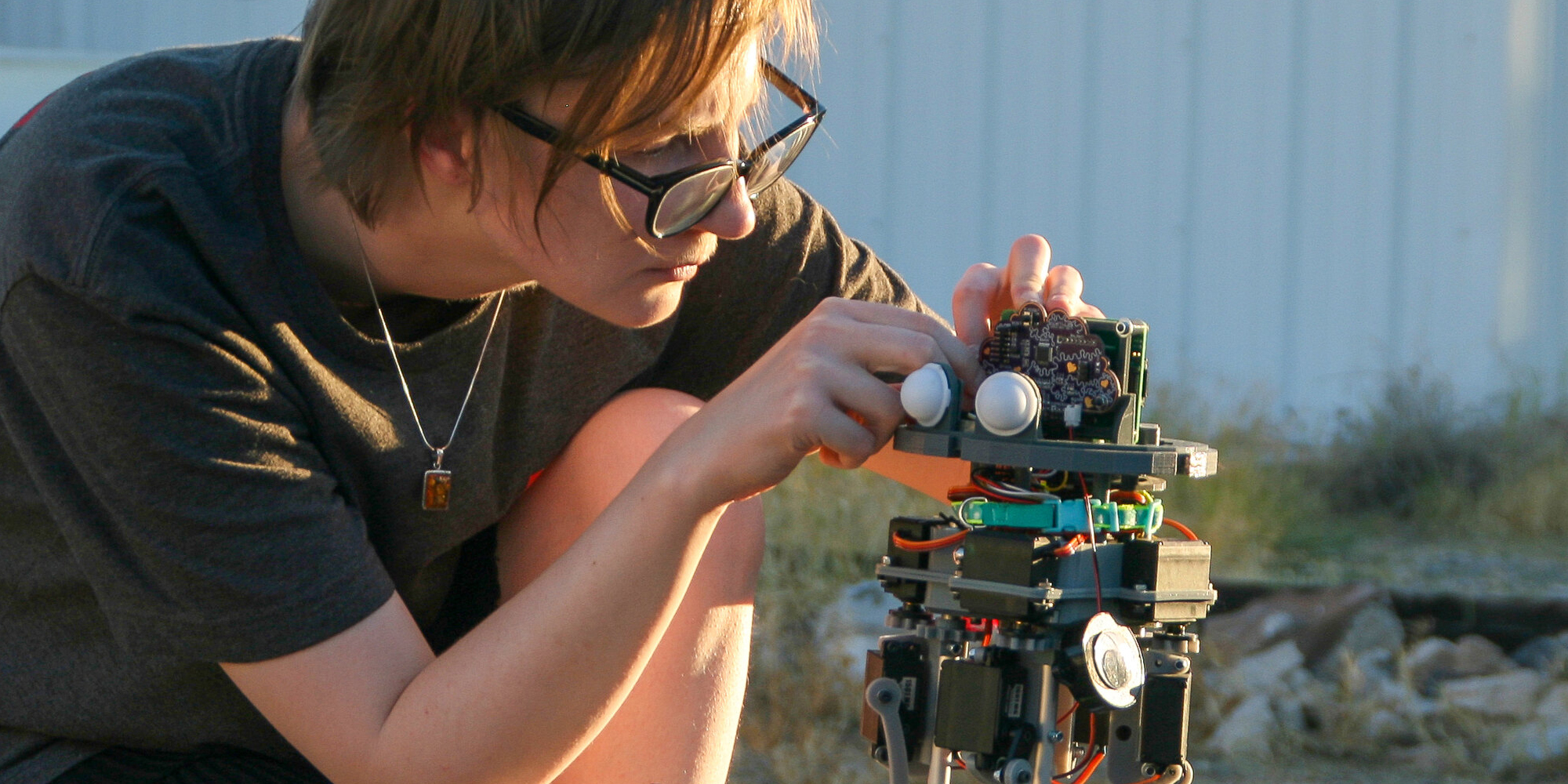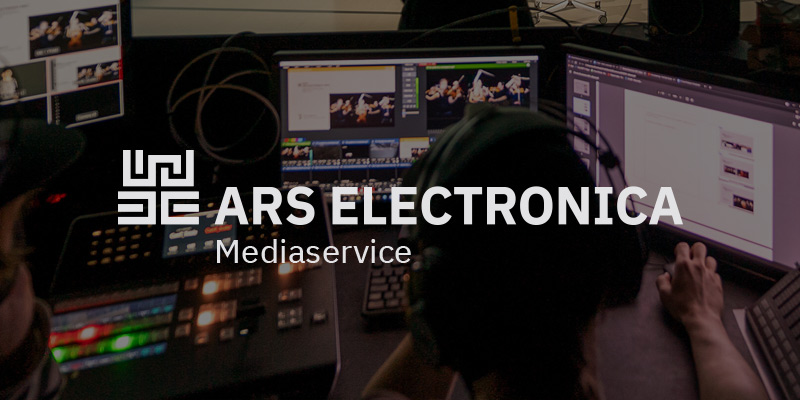Press release as PDF
Ars Electronica Blog
(Linz, 26 January, 2021) The “European ARTificial Intelligence Lab,” AI Lab for short, offers residencies at distinguished scientific institutions to artists working with artificial intelligence. Initiated by Ars Electronica in 2018, the AI Lab network, funded by the European Union’s Creative Europe Programme, includes 17 renowned institutions from the arts and sciences across Europe. The residency program, whose current motto is “Astronomy x AI,” is led and organized by Ars Electronica in collaboration with Leiden Observatory. The winners of this year’s residencies have now been announced: Sarah Petkus (US) and Mark J. Koch (US) from Las Vegas will work on their Moon Rabbit project during a residency at the Leiden Observatory and the Ars Electronica Futurelab in Linz.
Sarah Petkus (US) and Mark J. Koch (US)
Sarah Petkus is a roboticist and illustrator who works with her partner Mark J. Koch, an electronics engineer and software developer. Together they create wearable devices and robots designed to challenge the way people view their relationship with technology. Furthermore, Sarah Petkus and Mark J. Koch use social media and various video sharing platforms to engage in dialogue with other creators, engineers and artists around the world. In this way, they hope to strengthen a creative community that focuses on their shared values.
Moon Rabbit
Since time immemorial, we humans have looked up to the heavens and wondered about the nature of our existence. And who knows, maybe one day we might even discuss this fundamental question with our digital offspring? If so, will they be able to help us discover answers in the patterns and data hidden in the starry sky? In a research and development phase lasting several months, Sarah Petkus and Mark J. Koch attempt to teach a suite of artificial intelligences to recognize familiar shapes and objects in images of star clusters, planetary surfaces and other celestial bodies. Moon Rabbit aims to help form a team of humans and “AIs” whose focus is to discover meaning in the abstract. And maybe the AIs may even develop personalities and opinions of their own.
European ARTificial Intelligence Lab
The AI Lab residency “Astronomy x AI” was awarded as part of the European ARTificial Intelligence Lab. The AI Lab is dedicated to artists who work with AI applications and/or reflect on their use and impact on our society. The initiative is funded by the Creative Europe Programme of the European Union. The residency begins with a 4-6 week stay at Leiden Observatory; the second part takes the winners to the Ars Electronica Futurelab for 3-6 weeks, where they can develop and realize a project inspired by the Observatory residency.
Leiden Observatory
Leiden Observatory is the astronomical institute of the Faculty of Science at Leiden University. It was founded in 1633 and is the oldest university observatory in operation today, with a very rich tradition. Leiden Observatory conducts world-class research on the formation of structure in the universe and the origin and evolution of galaxies, the discovery and characterization of exoplanets, and the formation of stars and planetary systems. The Institute consists of approximately 35 faculty and adjunct faculty, 50 postdoctoral fellows, 50 MSc and 80 PhD students, and 30 support staff. Within the Faculty of Science, the Institute works closely with the Leiden Institute of Physics, the Institute of Mathematics, and the Leiden Institute of Advanced Computer Science.
Ars Electronica
Based in Linz, Ars Electronica is a unique platform for art, technology and society that has been analysing and commenting on the digital revolution since 1979. The focus is always on current developments and possible future scenarios and the question of how these will change people’s lives.
Photo:
Sarah Petkus and Robot “Noodle Feet” / Fotocredit: Sarah Petkus / Printversion
Photo:
Mark J. Koch & Sarah Petkus / Fotocredit: Mark J. Koch & Sarah Petkus / Printversion


